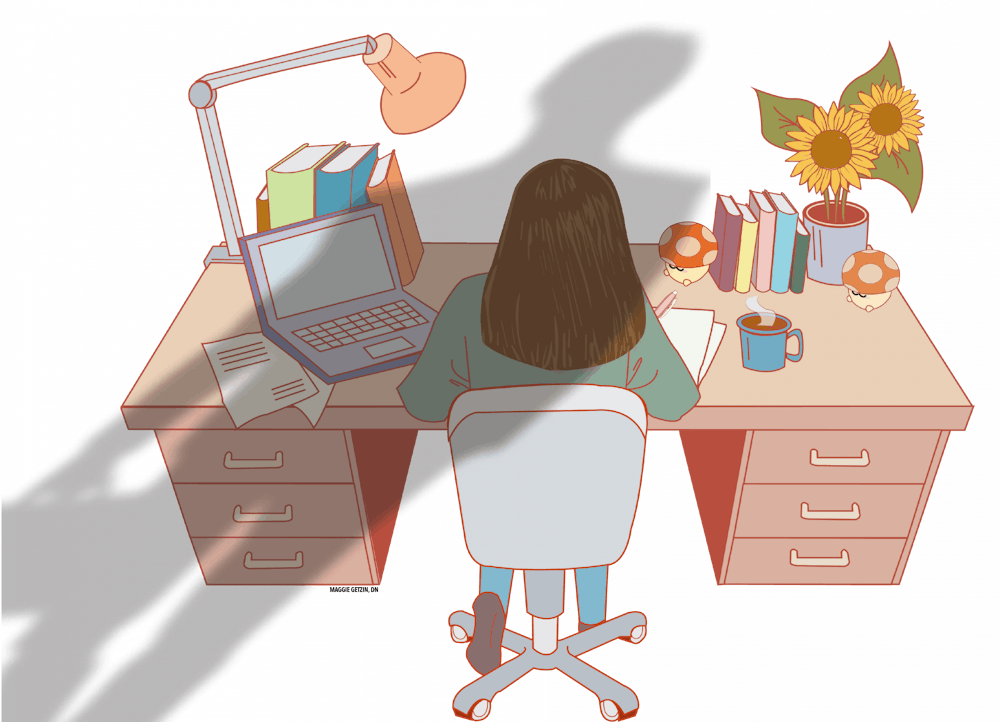
Taylor Smith is a junior news and magazine major and writes “Bold Type” for The Daily News. Her views do not necessarily reflect those of the newspaper.
I have never been a “hardcore” feminist.
I believe in women’s rights, I fight for equality, I want to close the wage gap and ban the pink tax and I am incredibly excited that this country finally has a woman in power in the executive branch of the government. However, I have never been one to raise my voice on these issues to an audience outside of myself.
I have been taught to stay silent because keeping my mouth shut is easier than trying to defend myself to people I don’t believe will listen.
But I have things to say, and, this time, I will speak up.
I am a woman in the workplace. I am one woman on a college campus of 22,000 students — an intellectual trying to save money for her college education by waitressing at one of the only restaurants and bars open during a pandemic — and I am tired of feeling like a trophy rather than a colleague, entertainment rather than an employee.
I am not here to satisfy anyone’s “male gaze,” a concept first introduced by British film theorist Laura Mulvey. My body is not meant for men to stare at when I walk in the doors of our workplace like a tiger ready to pounce. I do not wear low-cut shirts for men to shove money between my breasts as I set their fourth beer on the table, leggings for strangers to touch my butt without my permission or skirts for classmates to angle their phones and take photos of what I am wearing underneath.
I am a human — a woman — and I deserve the right to feel comfortable at work, to do my job and not feel sets of eyes looking over my shoulder. I shouldn’t have to worry about whether or not my clothes are too revealing, potentially giving off signals I did not intend to send, allowing people the opportunity to see more than what I want to share.
In her 1975 essay “Visual Pleasure and Narrative Cinema,” Mulvey wrote, “In a world ordered by sexual imbalance, pleasure in looking has been split between active/male and passive/female.”
In a world ordered by patriarchy and misogyny, women are merely for men’s entertainment.
As a female, I have felt the passive stares, the superiority complex of nearly every man who I have encountered. I have experienced the passivity Mulvey wrote about.
As a woman — a human — I deserve to not flinch at every giggle I hear and worry that maybe I did something that made the men around me think of me in inappropriate and embarrassing ways. All I want is to walk through the doors of my workplace and not fear I may be touched or groped serving older men their drinks. I deserve to feel safe, but I never do.
And I deserve to never feel the need to explain myself, to defend myself and my decisions to people I owe no explanation to. “No” is a complete sentence, and I have no obligation to elaborate. Yet, no matter how many times I say it, I am approached again.
As a woman who has been shut down all her life — a woman who struggles to stand up for herself because she is afraid of the consequences — it is already hard enough for me to say “no” once Having to say it multiple times — and feeling pressured to provide an explanation behind that two-letter word — feels nearly impossible.
But, thankfully, I have my words. I will always have my words, and I am deciding to use them now to say what I have held back for far too long and stand up for any woman who may feel the same.
Since its introduction, Mulvey’s concept of the male gaze has transformed into a feminist issue on the tendencies of heterosexual males to present, represent and think of women as sexual objects that exist for their own personal pleasure rather than individual human beings with purpose, and it’s become an issue in the workplace.
In a 2018 survey conducted by Stop Street Harassment, a nonprofit organization “dedicated to documenting and ending gender-based street harassment worldwide,” 81 percent of women reported experiencing sexual harassment in their lifetime compared to 43 percent of men. The same survey found that approximately 40 percent of women have experienced sexual harassment in the workplace, and nearly 10 percent of these women sought a new job assignment, changed jobs or quit.
No woman should ever feel they have to change their career to avoid sexual harassment, but, every day, we walk into our places of work and fear our dress may be too short, our heels too high or our makeup too much.
I feel eyes on me. I hear my name pop up in conversations that aren’t work-related. I know about the rumors and the discussions the men have about me behind my back. I know about the photos that exist of me that I didn’t know were being taken. I feel guilty spending the money I received because I decided to wear a V-neck top to work that day.
I’m tired of it.
I’m tired of not feeling comfortable in my work environment, tired of not being respected and, most of all, tired for the more than 30 percent of women who feel the same way.
I stand in solidarity with the 40 percent of women who experienced sexual harassment in the workplace and with those who are too afraid to speak up. I will speak up for you, and I hope my voice is enough to make you feel heard.
Contact Taylor Smith with comments at tnsmith6@bsu.edu or on Twitter @taynsmithh.





